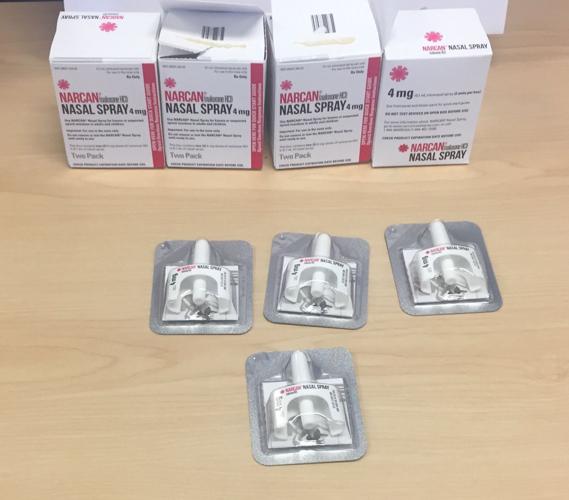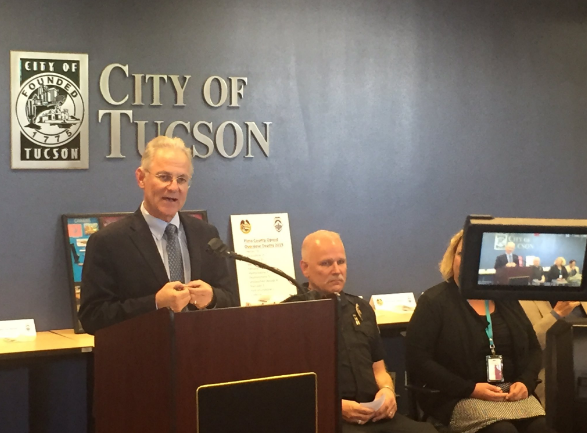The Tucson Police Department has spent about $34,000 to outfit 400 officers with a new tool designed to save lives — a nasal spray that can be administered to a person overdosing on opioids.
Mayor Jonathan Rothschild announced the new initiative on Monday, giving officers a kit that can reverse an opiate overdose within minutes.
It’ll be part of a first-aid kit that many officers carry to provide initial treatment to trauma victims.
Rothschild said the growing opioid epidemic has led to too many hospitalizations and deaths in the community.
Figures from the Pima County Office of the Medical Examiner suggests the number of deaths related to narcotics has increased by 20 percent in a single year.
Last year in Pima County, 226 people died from opiate-related overdoses.
The city has bought 450 Narcan nasal spray kits, paying about $75 for each unit — which can provide up to two doses.
In some circumstances, a person who overdosed may require more than a single dose.
Dr. Francisco Garcia, the Pima County Health Department director, said the cost is a fraction of the estimated $12 million spent annually on hospital and emergency room-related visits for treating addicts locally.
Tucson Police Department Chief Chris Magnus urged the public to call 911 if they suspect anyone has overdosed, saying his department is less concerned about an arrest when responding to a call of someone overdosing.
The department is interested in trying to help addicts while focusing on arresting drug dealers.
“Simply locking them up doesn’t solve the addiction problem,” Magnus said at a news conference.
Susannah Castro talked about her 19-year-old son, Cree, who overdosed on heroin in Veinte de Agosto Park last month.
“Nationwide we are losing a generation of Americans,” she said about the opioid abuse epidemic.
She said if Tucson police officers had Narcan kits two years ago, it is possible they could have saved her son’s life.
The Tucson Fire Department has been using the kits for years, said Capt. Barrett Baker, a department spokesman.
In the last 30 days, paramedics administered the drug 137 times to 93 patients, he said.





